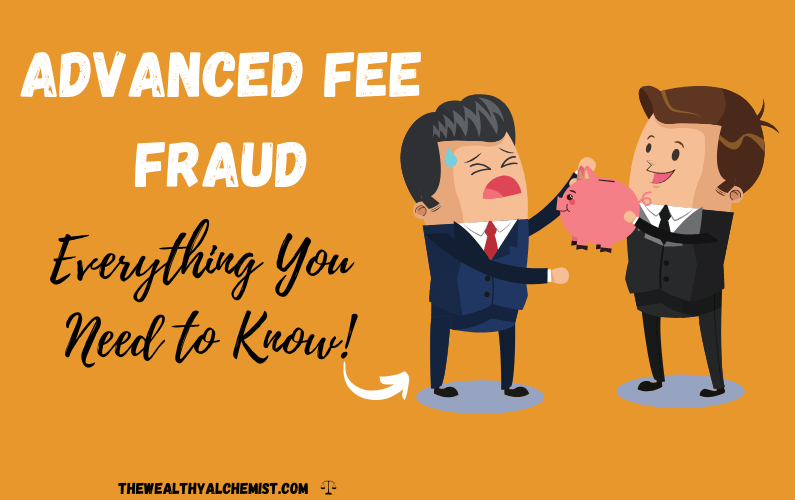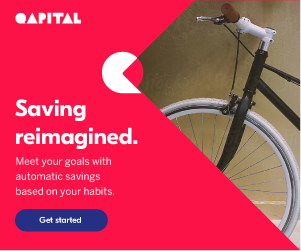
Get rich quick schemes work…on you!
In our last post about money scams, we talked about investment fraud. While anyone can fall prey to that type of scam, not everyone is an investor.
Most of us do have access to email, however. And that’s all you need to fall fictim to this scam.
This scam masquerades as one of the easiest get rich quick schemes out there. And it goes something like this…
Have you ever gotten an email from a Nigerian diplomat looking to transfer money out of his country? Did he offer you a pile of cash to make it happen for him?
Or maybe you were contacted by a Nigerian astronaut’s cousin about a money transfer?
You’ve probably gotten an email like that before or at least know someone who did.
These Nigerian email scams are just one type of “advance fee fraud” but they are the most well-known.
Even if you never fell for this fraud, many people do. In fact, American’s lost over $700,000 last year alone because of these scams. And worldwide losses are estimated to be over $1 billion every year.
Related Post: Dave Ramsey’s 7 Baby Steps to Financial Freedom.
Contents
- 1 The basic thrust of the advance fee fraud
- 2 These get rich quick schemes are not new
- 3 Same scam different methods
- 4 Nigerian 419 Advance Fee Fraud
- 5 Why Nigeria?
- 6 How do they get your information?
- 7 Characteristics of Nigerian 419 fraud
- 8 Complications
- 9 The dangers of travel
- 10 Why these get rich quick schemes continue
- 11 Tips for avoiding this scam
The basic thrust of the advance fee fraud
The basic pitch of an advance fee fraud goes something like this:
“I have a large pile of cash for you, and you can get your hands on it if you send me some money to pay a teensy-weensy fee.”
While the idea may sound ridiculous, the stories that the scammer puts together to make their pitch can actually be pretty convincing.
If you’re looking for get rich quick schemes or are desperate for money, you can fall for this fraud even if you were initially skeptical.
These get rich quick schemes are not new
While the most famous advance fee fraud nowadays are the Nigerian emails. This scam has been around for ages.
The “Spanish prisoner letter” dates back to the 16th century and is basically the same type of trick. The letter tells you about a wealthy man who’s stuck in a Spanish prison. He wants you to send money to bribe the prison guards to let him out.
Naturally, if you sent the money and secure his freedom, he’ll reward you with a portion of his fortune.
Of course, the fortune never materialized for the Good Samaritans that sent the bribe money.
But wait, there’s more!
Another famous advance fee fraud was perpetrated by a con man named Oscar Hartzell in the early 20th century.
The idea behind this one was that the estate of Sir Francis Drake had never been paid to his heirs. What Mr. Hartzell did was contact all the people named Drake in his state and convinced them to invest in his campaign to sue for their inheritance.
Of course, it was all just a lie, and the scam spread to more and more victims who thought they might be heirs. In the end over 200,000 people had fallen for this scam and gave money to Hartzell.
Same scam different methods
In the past, the advance fee fraud was limited. I mean, you can only write so many letters in a day, right? But nowadays with the internet, a scammer can send thousands of emails in a moment.
Because of the sheer numbers of emails that go out, even if only a small percentage of people fall for it, the pay-off can be huge.
And the scams that worked well in the past are updated for a modern audience.
So, instead of getting an email about the estate of Sir Francis Drake, you might get one about a soldier who found Saddam Hussein’s hidden treasure and needs your help to bring it back home.
The stories the scammers tell usually sound like plausible get rich quick schemes.

Nigerian 419 Advance Fee Fraud
We see that these advance fee frauds are nothing new. They’ve been around for a long time and done in many different places.
But nowadays Nigeria is the hotspot for this type of scam. In fact they’re known as Nigerian 419 (of Nigerian Letter) scams.
FYI: They’re called 419 scams, because section 419 of the Nigerian Criminal Code is the section that talks about fraud.
Why Nigeria?
Nigeria has more extremely poor people than any other nation.
Its crumbling economy and high unemployment rate left many educated, English-speaking Nigerians without jobs. And corruption in law enforcement and government, combined with a culture that’s big on get rich quick schemes led to Nigeria becoming a hotspot for advance fee fraud.
How do they get your information?
Potential victims are contacted mainly through email, but some scammers use text messages, faxes and even letters. The scammer knows that this is a numbers game, so the more people contacted, the more likely they’ll be to make some cash.
And scammers usually find their victims using business directories, chat rooms, newspapers, recruiting firms and online resumes. So if you’ve ever wondered how they got your email…there you go!
Related Post: Money Scams You Need to be Aware of.
Characteristics of Nigerian 419 fraud
419 scams are creative, but their basic premise falls into one of a few categories.
- Real estate purchases
- Money from wills and estates
- Converting from one currency to another
- Contract fraud
- The sell of oil or other energy products
Whichever category the scam falls into, the reward is normally pretty large. With promises of cash payments of at least $10 million for the victim. This makes it very attractive for people susceptible to get rich quick schemes.
The scam emails are normally poorly written with a lot of misspelled words as well. And while some 419 scammers probably can’t write well, others write poorly on purpose to deceive you into believing that you are dealing with an uneducated individual incapable of swindling you.
If you respond, the scammer starts to build your confidence by constantly reassuring you that everything is going well and that you will receive the money soon. To make the scam look legitimate, the scammer may email you authentic-looking documents or contracts for signature.
Complications
After a while you’ll be told that there are complications keeping the money tied up. And that as a show of good faith, you must send money to either bribe auditors, pay attorney fees, pay transaction costs, etc.
People who pay the first “good faith” fee encounter many more problems, each requiring another fee to solve. Each new fee is the last one before the money is transferred. Some people are strung along for months or even years before they realize they’re being scammed.
Related Post: Tax refunds Cost You Money.
The dangers of travel
Before paying advance fees, some people travel to the scammer’s country to meet. Some have been kidnapped and killed. Luckier victims have been taken to restaurants or taken to meet government officials.
Why these get rich quick schemes continue
Most Nigerian 419 scammers don’t worry too much about getting caught because they don’t target victims in their own country. And targeting victims outside the country makes it much more difficult for law-enforcement to find the scammer.
It’s also the case that each individual fraud is usually small. And the time and effort needed for international investigations isn’t worth the trouble for frauds this small.
Tips for avoiding this scam
If you receive an email from anyone you don’t know, whether they’re in the U.S., Nigeria or some other country, don’t respond.
Be skeptical of anyone representing themselves as foreign government officials asking you to help them move money to overseas bank accounts.
A stranger isn’t going to give you millions of dollars for doing virtually no work. Don’t believe that they’ll give you a large cash reward for helping them.
Guard your financial information and don’t send money to people you don’t know.
Cheers!

Oliver
Latest posts by Oliver (see all)
- 26 Best Personal Finance Tips To Rock Your Money! - November 18, 2020
- How Much is 6 Figures? Epic Salaries Explained. - September 10, 2020
- Is Ibotta Legit? The Most Complete Ibotta Review 2021 - April 15, 2020



